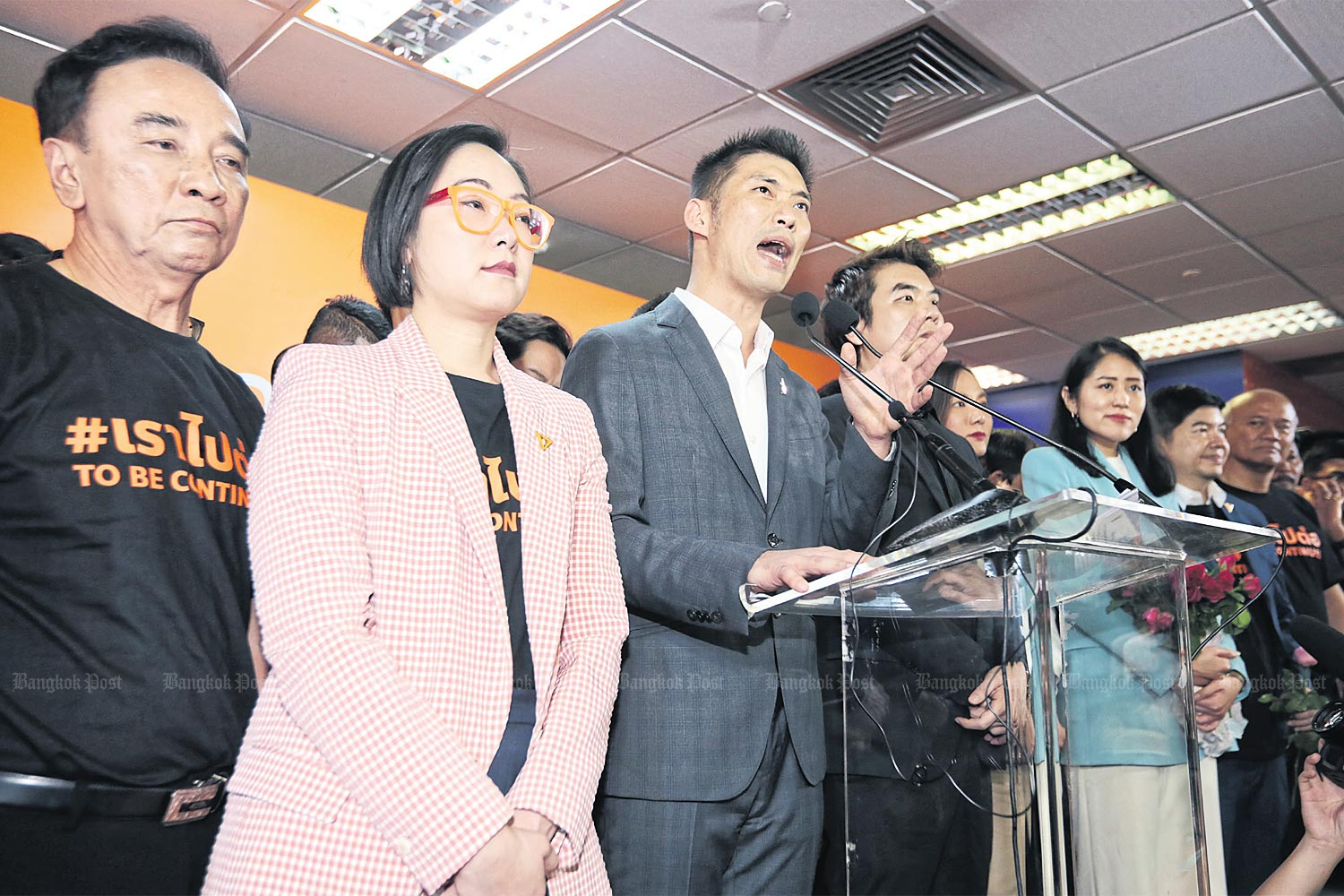
With the Election Commission (EC)’s decision on Tuesday to pursue criminal charges against Thanathorn Juangroongruangkit over a much-disputed media share transfer case, many observers may have stopped questioning how Thailand’s law-enforcement system could have come this far, and started wondering whether the worst of things is yet to come.
The poll agency’s move against the leader of the disbanded opposition Future Forward Party (FFP) comes at a time when public mistrust of Thailand’s justice system has already reached its peak, following FFP’s dissolution last month.
Criticism over unreasonable enforcement of the law in many politically-motivated “lawsuits” filed over the past year has been widespread in the past month.
For more than a decade, poor illogical enforcement of law against popular politicians and parties seen as threats to the status quo has been common, with our justice system being criticised for resorting to “rule by law” rather than strictly following the “rule of law”.
Many political dissidents have also suffered similar fates.
During his speech on Monday at Thammasat University’s Rangsit campus, Thongchai Winichakul, Thai historian and professor emeritus at the University of Wisconsin–Madison in the US, described this trend as Thai-style rule by law which has fostered injustice within the justice system since the 2006 coup.
This trend has worsened since the 2014 military coup.
During this time, the building of Thai democracy has undergone repeated assaults, especially in its justice system, by the powers that be.
Independent public institutions that were supposed to play the role of referees have become the actual players, the academic said.
Mr Thongchai, a student leader of the 1973 popular uprising against military rule, based his conclusion on his new 200-page study on Thailand’s history of law enforcement, dating back as far as 1938. The study shows the enforcement of law in this country has been institutionally distorted, lacking common sense and reason.
He is the latest prominent figure to have come out to bring attention to the “institutionally distorted and outdated” Thai-style rule of law.
This Thainess in law enforcement was made crystal clear when the EC filed a new case against Mr Thanathorn, who may end up in prison for up to 10 years and be banned from politics for 20 years if found guilty. He was first banned from politics for 10 years when his party was dissolved.
The EC came up with criminal charges in relation to the Constitutional Court stripping Mr Thanathorn of his MP status in November last year.
What has largely been missing in public debate on the case, which was limited due to a new regulation passed by the former military regime’s lawmakers that broadly restricts criticism of the charter court, is the similarities between the Thanathorn case and the one filed against Foreign Affairs Minister Don Pramudwinai the year before.
As I mentioned in an article in June last year, the case stemmed from an allegation that Mr Don’s wife failed to reduce her shareholdings in two companies within 30 days after the constitution took effect on April 6, 2017, but did it six months later when the companies submitted their Bor Or Jor 5 forms (annual shareholding reports) to the Department of Business Development.
His wife used the share transfer documents as evidence for the timing of her share transfers. And the Constitutional Court found that acceptable.
Mr Thanathorn fought a similar battle. He was accused by the EC of failing to transfer shares in V-Luck Media Co prior to running as a candidate in the March general election last year. He used evidence similar to that presented by Mr Don to defend the timing of the transactions. But he lost due to a number of irregularities in the transaction.
Now the EC wants to take the next, harsher step against him. It accuses him of breaking the law by applying to be an MP candidate knowing he was not qualified.
How would he have known that he was not qualified when his interpretation of the Civil and Commercial Code’s provisions on share transfers could have reassured him that his transaction was complete? This is how the law is commonly interpreted in the business community, according to financial experts.
Trying to have Mr Thanathorn locked up, the EC must establish a clear motive and evidence that is beyond reasonable doubt. This is the universal rule of criminal law enforcement.
It cannot base its accusation on observed irregularities. Again, as Mr Thongchai and other academics have pointed out, the Thai-style rule of law is unique as much as it is unjust. So we can expect the unexpected.
Before Mr Thongchai’s remark, a group of 36 Thammasat University law lecturers — who usually hold different legal viewpoints — voiced their disagreement with the Constitutional Court’s decision to dissolve FFP over a loan it took from Mr Thanathorn.
They disputed the court’s key points in the ruling, saying that such lending is not illegitimate under the political party law, that it is not a donation and that the interest rate is not unusual.
More importantly, such wrongdoing, if it exists, would not lead to the dissolution of any party. A number of other legal and political experts have shared the same views.
Their disputes make sense for anyone reading the law and applying common sense. It is no wonder that there has been immediate reaction to the ruling from university and high-school students who have organised flash mobs in their campuses and some public areas nationwide.
I have been following their movement and speeches online, and even attended a rally at Kasetsart University, and am impressed by how much they understood.
They lamented about the collapse of rule of law, unfair election rules and a pro-junta 2017 constitution that helps Gen Prayut Chan-o-cha become prime minister for a second time.
They also expressed bitterness about the EC’s dubious interpretation of law on party-list MP seat allocation, which eventually helped the pro-military Palang Pracharath Party form the government.
Yet, they have become a subject of ridicule and accusation by pro-military, pro-establishment people of being pawns of FFP “politicians”.
For them, the dissolution of the party that most of them voted for is the “final straw”. They said they have been angered by the injustice and can no longer swallow it like a bitter pill like many of us in the previous generation have done.
However, EC’s move to slap Mr Thanathorn with a criminal case may have proved them wrong. What they thought was the “final straw” may not be final yet.
This also leaves room for questions about whether there will be more cases against other FFP executives and its former MPs, who weren’t banned and have come together under the banner of the Move Forward Party.
This latest episode of so-called law enforcement will not just rub more salt into the political wound. It will pack a hefty punch on the country’s already bruised and faltering justice system.
